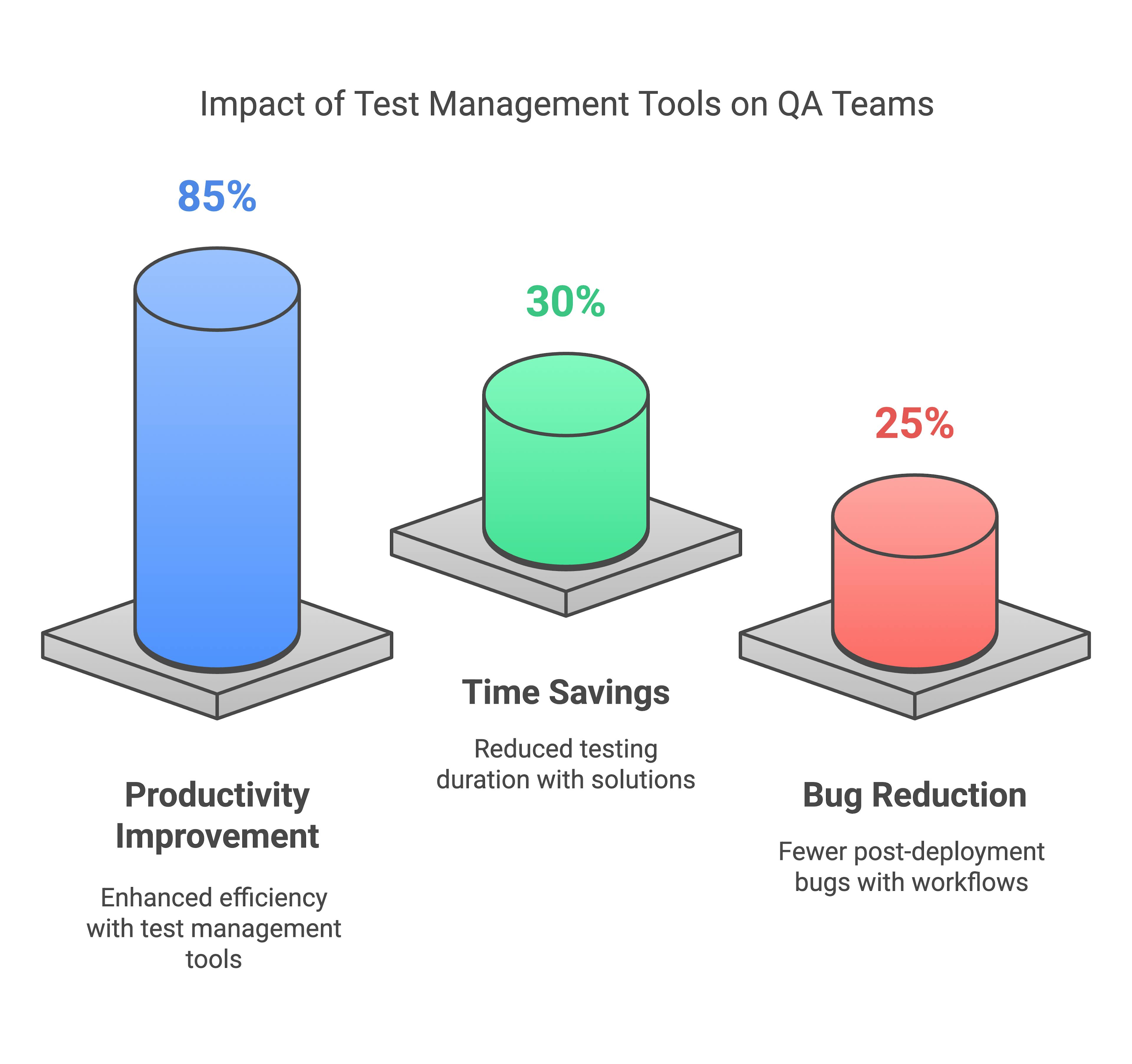Basics. Jan 22, 2025
Why Your QA Teams Need Test Management Software

A staggering 30% of software projects fail due to poor testing practices, resulting in millions of dollars wasted. For QA teams without proper test management tools, the road ahead can be filled with obstacles. This often leads to disorganization, lack of visibility, and missed deadlines. The need for effective solutions becomes essential. Test management software can make all the difference, enhancing QA processes and ensuring software quality.
Streamlining Test Case Management
Centralized Repository
A centralized repository allows QA teams to store and manage test cases in one place. This simplifies access to test scripts, makes it easier to update them, and ensures everyone is on the same page. For instance, top companies adopted a centralized test management system, reducing search time for test cases by 50%.
Improved Collaboration
Test management software enhances collaboration among QA teams and stakeholders. With tools that allow real-time communication, teams are less likely to face misunderstandings. A recent survey indicated that teams using such software saw a 40% improvement in communication efficiency.
Version Control and History Tracking
Managing changes in test cases is critical. Version control allows QA teams to track all modifications, ensuring no vital information is lost. Knowing what has changed and why is key to maintaining the integrity of testing.
Enhanced Test Execution and Reporting
Automated Test Execution
Automating test execution can save significant time. Studies show that automation can cut testing time by up to 80%. Reducing manual tasks allows teams to focus on more complex testing scenarios.
Real-time Reporting and Analytics
With real-time dashboards, teams can monitor testing progress and spot bottlenecks quickly. For example, a team at Company Y used detailed reporting features to identify delays, resulting in a 30% faster testing cycle.
Simplified Defect Tracking
Test management tools streamline defect tracking by providing easy-to-use interfaces for logging issues. Teams can quickly identify, track, and resolve defects, speeding up the overall testing process.
“Teams report saving an average of 25 hours a month by automating routine testing processes. ”

Improved Test Planning and Organization
Requirements Traceability
Linking test cases back to requirements is vital for complete coverage. This ensures all features are tested thoroughly.
Test Plan Creation and Management
Test management software helps create, manage, and execute detailed test plans. Teams can easily organize workflows and set priorities, maximizing efficiency. It's beneficial to keep plans updated as project requirements change.
Risk Management
Effective risk management ensures that potential issues are identified early in the testing process. Test management software provides tools to assess risks, allowing teams to address them proactively.
“"Test cases without traceability can lead to missed requirements" ”
Boosting Team Productivity and Efficiency
Improved Test Coverage
Ensuring comprehensive test coverage helps minimize the risk of missed defects. Test management tools offer structured approaches to coverage mapping, highlighting areas needing attention.
Better Resource Allocation
Optimizing resource allocation is critical for enhancing productivity. Test management software provides insights into team performance, helping managers allocate tasks effectively.
Seamless Integration with Existing Tools
Integration with Development Tools
Seamless integration with CI/CD pipelines and development tools is essential. This ensures a smooth workflow between development and testing, improving overall software quality.
Customization and Flexibility
The ability to customize test management software to fit specific QA needs enhances efficiency. Teams can adapt tools to match their workflows, maximizing usability.
Scalability
As projects grow, the need for scalable software becomes clear. Investing in scalable test management solutions prepares teams for future testing demands.
Summary
In summary, test management software is essential for QA teams seeking efficiency and effectiveness in their testing processes. It streamlines workflows, enhances collaboration, and provides crucial insights for better decision-making. Efficient and effective testing leads to higher software quality and satisfied clients. Explore and implement test management solutions today to elevate your QA practice to the next level.